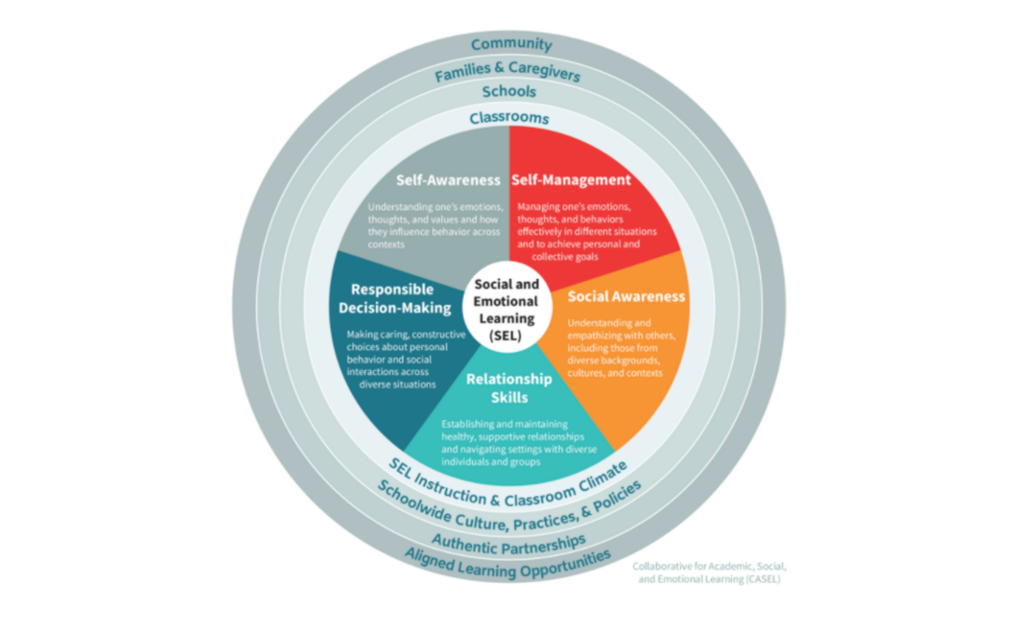What is Social Emotional Learning?
As an integral part of education and human development, Social Emotional Learning is the process through which all young people and adults acquire and apply the knowledge, skills, and attitudes to develop healthy identities, manage emotions and achieve personal and collective goals, feel, and show empathy for others, establish, and maintain supportive relationships, and make responsible and caring decisions.
Social and Emotional Learning is defined by CASEL (2020)
Social Emotional Learning is the process through which children and adults acquire emotional intelligence. MCEC’s Military Child Well-being Toolkit categorizes emotional intelligence as self-awareness, self-management, social awareness, social skills, and responsible decision-making, similar to CASEL’s five components of Social Emotional Learning. The emotional, social, and mental health of military students plays a crucial role in their academic success.
Social, emotional, and academic development (S.E.A.D.) takes a holistic approach to support students through sound policies and evidence-based practices that advance education equity through school-family-community partnerships. The focus is on advocacy, building trusting and collaborative relationships, meaningful curriculum and instruction, and providing ongoing multi-tiered service system (MTSS) evaluation. S.E.A.D. requires district and campus administrators to revisit discipline policies, professional development, and address systemic inequities to empower students, parents, teachers, and other youth serving professionals to create a safe, healthy, and equitable school climate and culture.
S.E.A.D. encourages shifting the emphasis from “fixing the child” towards a collaborative approach within the school setting, district policies, and community resources to create an equitable learning environment for all students (ED Trust.org)
References:
Cantor, P., Lerner, R. M., Pittman, K. J., Chase, P. A., & Gomperts, N. (2021). Whole-child development, learning, and thriving: A dynamic systems approach. Cambridge University Press. https://doi.org/10.1017/9781108954600
CASEL. (2020a). Resources: SEL background and research. Retrieved from: https://casel.org/resources-learn/
CASEL. (2020b). SEL implementation tools and resources. Retrieved from: https://casel.org/resources-support/
Duchesneau, N. (2020). Social, Emotional, and Academic Development through an Equity Lens. Education Trust.
Weissberg, R. P., Durlak, J. A., Domitrovich, C. E., & Gullotta, T. P. (2015). Social and emotional learning: Past, present, and future. In J. A. Durlak, C. E. Domitrovich, R. P. Weissberg, & T. P. Gullotta (Eds.), Handbook of social and emotional learning: Research and practice (pp. 3-19). New York, NY: The Guilford Press.
Disclosure Statement: These tools are not intended to be a substitute for professional medical advice, diagnosis, or treatment. Always seek the advice of your physician or other qualified health providers with any questions you may have regarding a medical condition. Never disregard professional medical advice or delay in seeking it because of something you have read on this website.

Have a Question? Ask an MSC!
If you have a question about academic transition, education options, or how to best meet the needs of your military-connected child, connect with a Military Student Consultant.
Our MSCs truly understand the challenges related to military life and they stand ready to serve.

